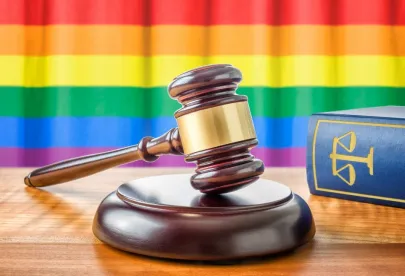The Michigan Civil Rights Commission has significantly expanded protections for LGBT individuals under the Elliott-Larsen Civil Rights Act. These expanded protections could have an impact on Michigan employers.
The Elliott-Larsen Civil Rights Act (the "Act") is a 1976 Michigan statute that protects against discrimination based on "religion, race, color, national origin, age, sex, height, weight, familial status, or marital status." The Act delegates interpretation and enforcement of this law to the Michigan Civil Rights Commission and the Michigan Department of Civil Rights.
Historically, the Act was interpreted not to protect LGBT individuals, as it did not specifically refer to “sexual orientation” or “gender identity” as protected classes. This was in contrast to the civil rights laws in certain other states, such as Illinois, which expressly prohibit discrimination based on “sexual orientation.” But on Monday, May 21, 2018, this all changed. The Michigan Civil Rights Commission voted 5-0 to issue a new interpretive statement on the meaning of the word "sex" in the Act. The Commission's new guidance clarifies that sex discrimination includes discrimination based on an person's “sexual orientation” or “gender identity”—thereby expanding the Act to provide protections for LGBT citizens.
This new interpretation means that the Michigan Department of Civil Rights will now begin processing complaints of discrimination and harassment based on sexual orientation and gender identity, in addition to the other categories of complaints that it already handles. It is possible that this could result in an increase in complaints filed with the Department.
This move by the state Commission tracks similar action at the federal level by the Equal Employment Opportunity Commission (EEOC). The EEOC is charged with administering and enforcing Title VII of the Civil Rights Act of 1964, a federal law that prohibits discrimination and harassment based on many of the same protected classes as the state Act. Like the state Act, the federal Title VII does not explicitly mention “sexual orientation” or “gender identity” as protected classes. But recently, the EEOC has begun to interpret Title VII's sex discrimination prohibition as also forbidding employment discrimination based on gender identity or sexual orientation.
There is a possibility that the Commission’s new interpretation of the state Act will not take effect. A Michigan-based conservative legal group has already stated that it will mount a challenge to the new guidance, arguing that the Commission does not have the legal authority to expand protections to cover LGBT individuals. Further court action is therefore expected.
In the meantime, in order to ensure compliance with the Commission’s new interpretation of the Act and the EEOC’s position, employers may want to consider revisiting their EEO and anti-harassment policies. Although many employer policies already mention “sexual identity” and “gender identity” as protected classes, those that do not may want to consider whether it makes sense for their organization to start including those terms and training employees on compliance.




 />i
/>i
